Sofia Coppola has led us deep into the luxe bedchambers of a cosseted Marie Antoinette. She locked us in a Southern manse with the discontented women of The Beguiled. Now with Priscilla, the director plunges us into the shag-carpet world of Elvis Presley’s teenage paramour—a continuation of Coppola’s obsessions with hothouse environments and female confinement. She may have made her most straightforward, accessible film yet.Priscilla offers an empathetic treatment of a famous, very American story based on Priscilla Presley’s 1985 book Elvis and Me, a memoir some say conceals darker secrets. The movie has the same hushed, slightly sinister vibe of whispers behind closed doors. Luckily, it is offset by a flowing rhythm scene to scene and a bright, campy color scheme keeping the mood from becoming too lugubrious.
In 1959, 14-year-old Priscilla Beaulieu (Cailee Spaeny) is a military brat bored out of her skull on a U.S. base in Germany. A clean-cut young man offers to introduce her to pop star Elvis Presley, currently performing his military service. Winning permission to visit from her suspicious parents, Priscilla arrives to navigate a gauntlet of older hangers-on at Elvis’s home away from home. But giddy excitement arrives when heavy-lidded, slow-talking Elvis (handsome Jacob Elordi) takes the underage girl to his room for a night of deep conversation and furtive caresses, a claustrophobic tête-a-tête that will set the tone for their relationship.
Haunting period pop music accompanies Priscilla’s entry into Elvis’s entourage, which is structured like a loud, clingy extended family. Soon the singer removes her to Graceland mansion, controlling her wardrobe and her social set as she drifts away from her parents. Their bond seems to exist apart from the gung-ho gang inhabiting the isolated compound: Coppola tightens the focus to concentrate on details like Priscilla’s eyelashes and nails, reflecting her narrowing world. Meanwhile, Elvis’s treatment of her grows coarser after they finally marry, a goal that Priscilla had set her heart on for years.
Priscilla creates an enveloping and weirdly entrancing milieu. But the director’s conception of her lead character could use more grit and backbone. The real Priscilla Presley quickly developed a hard edge to deal with the meddlers, hangers-on, and multiple other women in Elvis’s life—in order to last, she’d have to. Here she’s wandering through most of the movie in a naïve, sad daze. Spaeny is photogenic in her own right, but she lacks the real Priscilla Presley’s striking, mask-like beauty, so similar to Elvis’s and vital enough to make her his peer in sheer good looks. It’s as though Coppola has stripped away all the character’s powers. As a result, the onscreen passive Priscilla doesn’t have any agency and is only just compelling enough to sustain a two-hour movie.
Still, the film tells a disquieting story. It shrewdly observes loneliness going hand in hand with fame, dreams coming true that can’t measure up to the promise, and how a fairy-tale life is exactly that—a fantasy for little kids that adults can find themselves shut out of overnight. Priscilla gives us a lot of soft focus up front, but in the end, its point of view proves sharper than we realized.


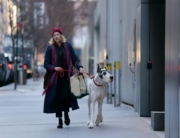
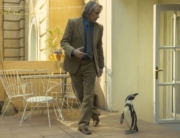
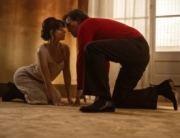
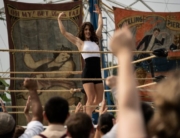
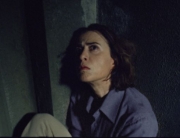










Leave A Comment